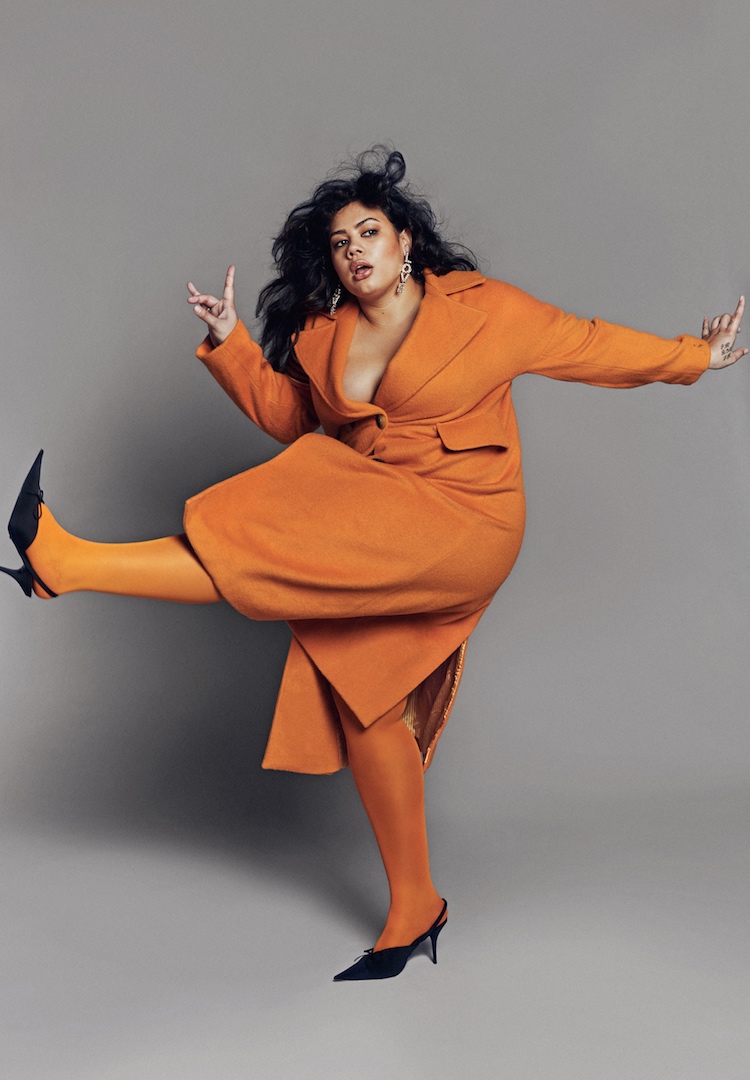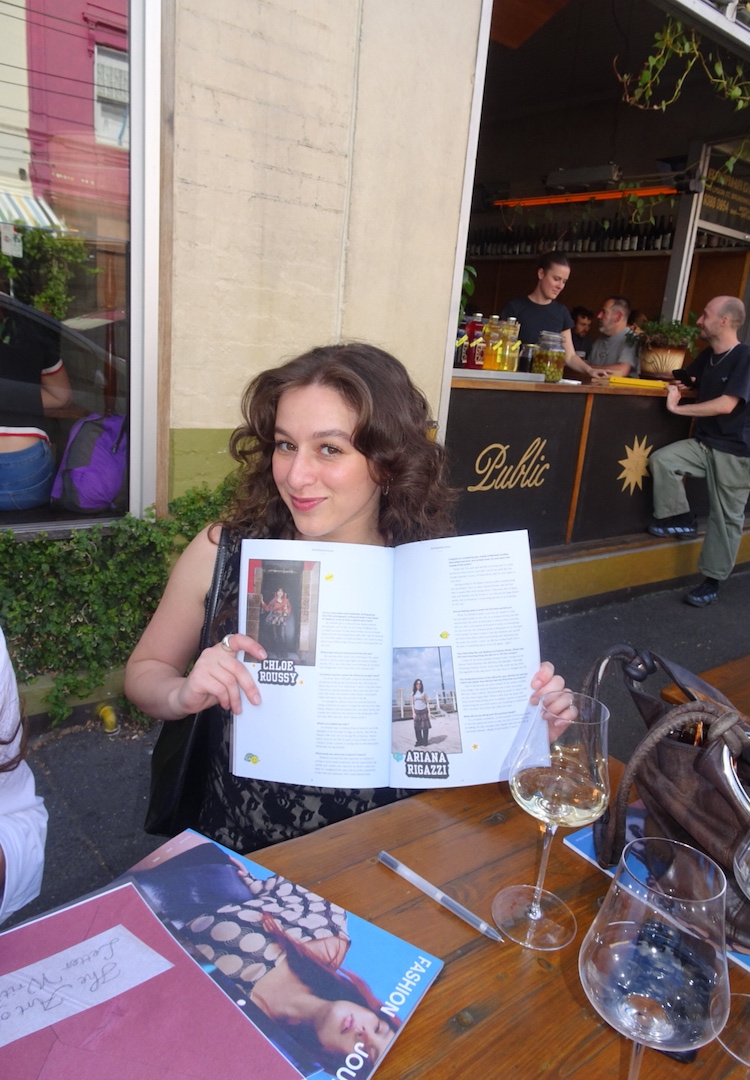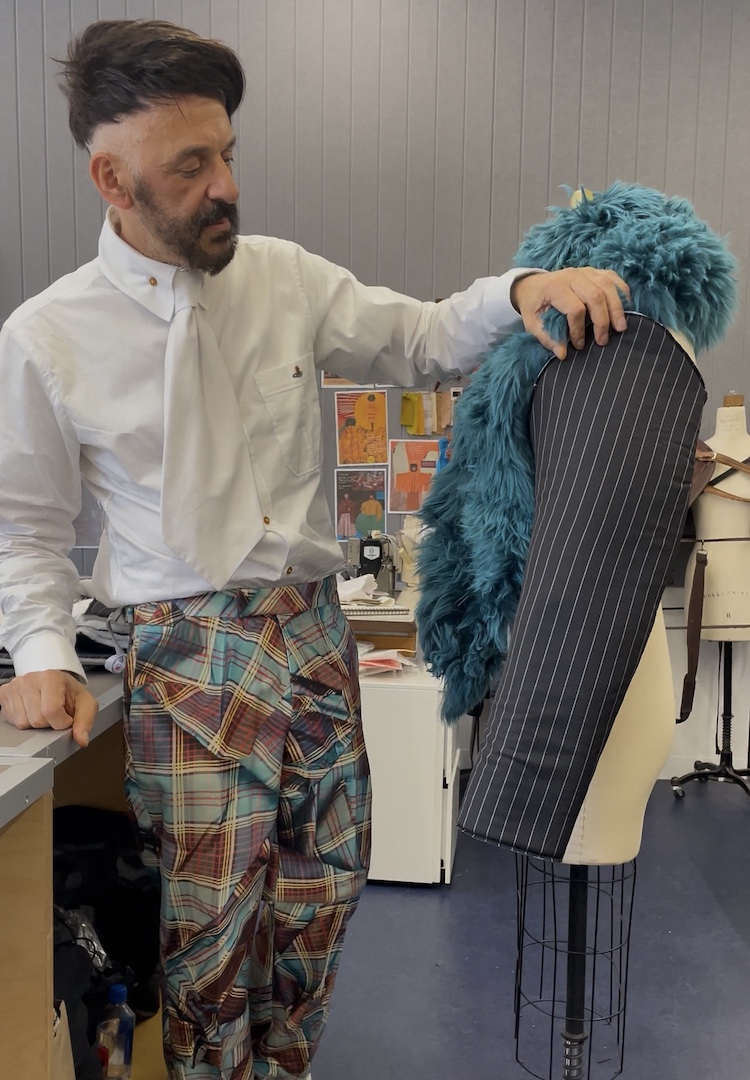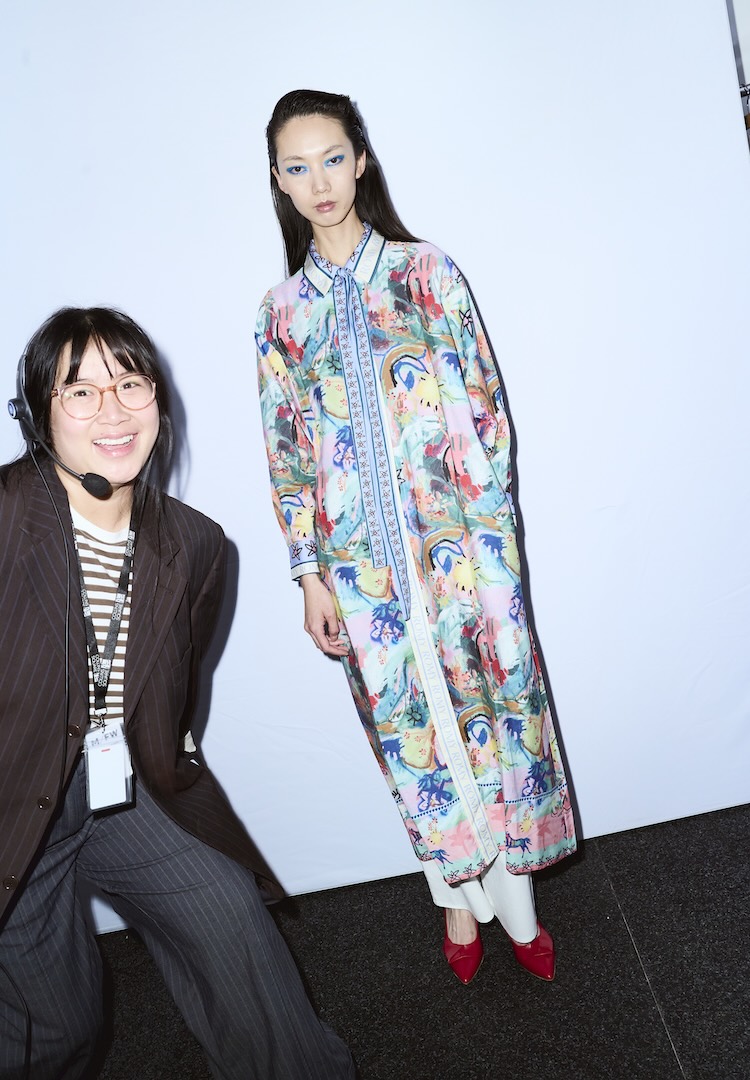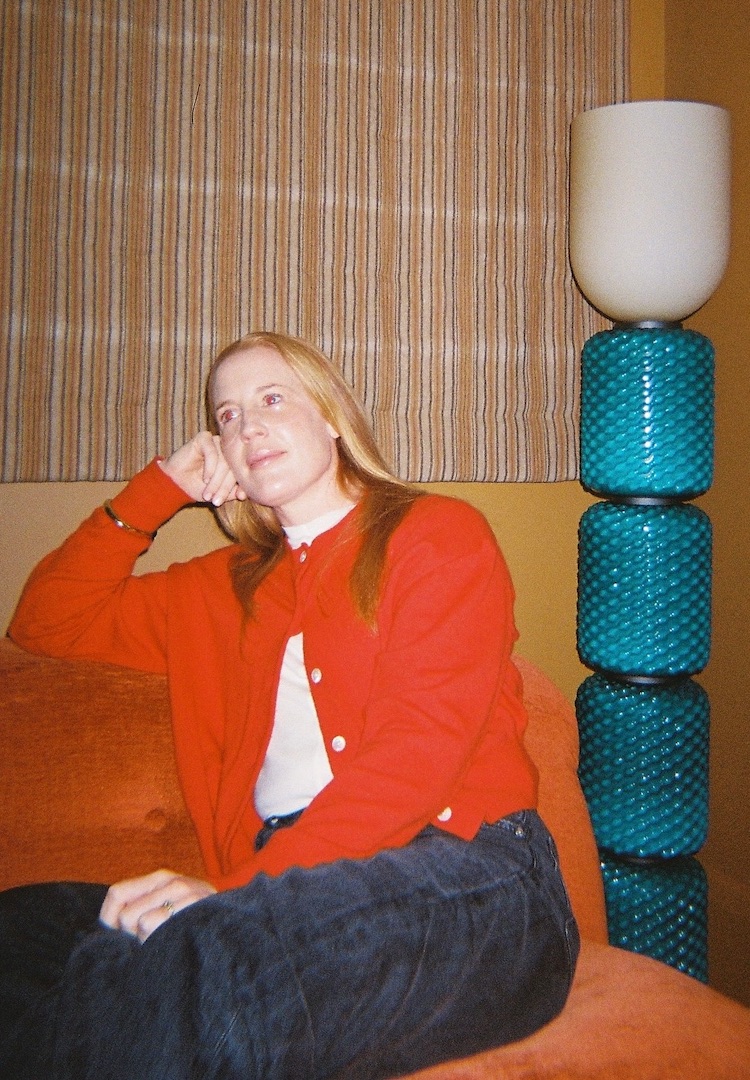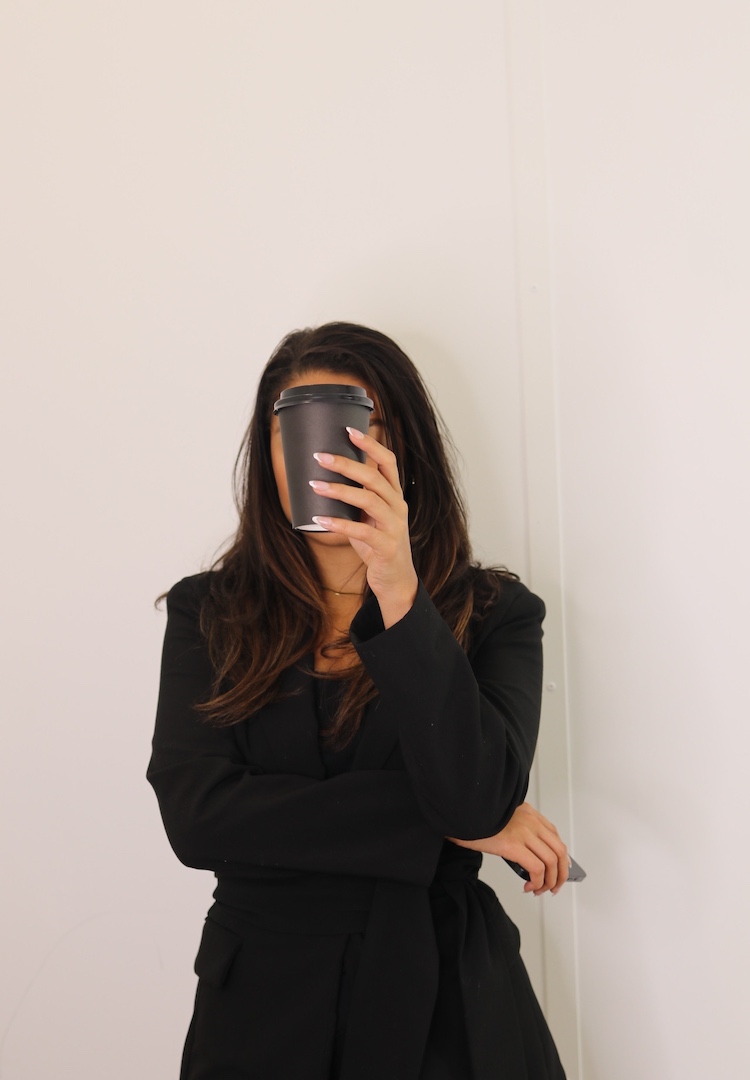A job you love versus financial stability: A careers coach weighs in
PHOTOGRAPHY BY HAYLEY PEASE
WORDS BY SARAH NOONAN
Can we really have both?
What do you want to be when you’re older? This was the question I struggled with the most when I graduated high school. During our final years of school and beyond graduation, this one question informs so many of our decisions.
Between the 18th birthday parties, muck up shenanigans and general final year tomfoolery, the last leg of our years in the school hallways, for many, are a scramble to choose and commit to a single career path.
Your boss called us and asked us to ask you to sign up to Fashion Journal’s newsletter ahead of your next meeting. Do it here.
Years 11 and 12 are structured to force us to make this decision before we even start on the books for our final year of high school. The subjects we take are essentially a point of departure into our professional life. And if you’re like me, at the ripe age of 17, you had absolutely no idea what direction you wanted to take.
While the lead up to our final years is all fun and games in the art room, the shift in focus comes hard and fast the closer to the end we get. And while I loved my time making mosaics and playing with film in the darkroom, I was often encouraged to neglect these electives for a portfolio of rudimentary prerequisite subjects. A portfolio that would offer a greater prospective career path – or so the high school career counsellors say.
When deciding on a career, making the call to follow our creative passions or gunning for a role that offers a stable paycheck is a hard choice many of us have had to (and will) face. I graduated from school five years ago and it saddens me still to catch up with old friends and hear that they’ve given up their creative aspirations and talent for a nine to five they feel much less passionate about.
But I understand their logic. I too neglected my passions for a couple of years between high school and university before deciding to make a change in my professional direction. For a multitude of reasons – financial and social reasons, immense competition, bad luck – some people I know will never be able to do the same. Why are we so easily swayed away from our desire to follow our passions as a career path? And how do we know we’re making the right call in choosing a single career avenue?
Our perception of a viable career is influenced by our education and upbringing
When we choose our subjects at school, there’s a huge discrepancy when it comes to the educational support available for creative versus standard subjects. When I was deciding on subjects for my final year at school, I was encouraged by my teachers to enrol in the standard core fields of English, maths and science in order to give myself the best scope of opportunity at university.
Not once did I seriously consider taking art or visual communications because my teachers believed these fields would be of little relevance to my professional future. I truly believe that in these years, our mentors at school have all the right intentions to best prepare us for our future beyond the classroom. However, this was (and maybe still is) predominantly viewed within the framework of a career that offers strong financial stability.
In the naivety of our school years, we rarely think twice about what avenue those who we assume know best are encouraging us to go down. While it may take longer for some to realise what area of work brings them the most fulfilment, it is very possible to seek out a job that provides both financial security and general satisfaction.
We have the luxury of choice when it comes to career fields
Much like the influence of our teachers, many of our parents maintain a traditional stance when it comes to which career path their children choose. Our parents came of age in a practical society where a job was merely a source of income.
There was once a distinct line that separated hobbies and passions from professional and financial responsibility. Work and play rarely, if ever, merged for many people. This is no longer the case.
Our generation is fortunate to have the luxury to pursue our passions as a career. Now, more than ever, there is a greater scope of opportunity for creative and innovative careers paths, and the digital age has brought with it a whole new world of well-paying creative work.
Melbourne-based careers coach Karen Lomas assures me that as we experience more and more employment situations across the course of our life, we recognise that hobbies can actually become our main hustle if we choose to pursue them.
“[These days] if you go into a profession due to external encouragement or pressure and it isn’t what you love, you might well be seen on Masterchef describing how your passion is in fact in food!” she tells me.
Creative careers can be financially viable
Many creative careers can in fact offer financial stability despite the widespread belief that they do not. The digital age has proven that creativity in all its forms is crucial to the global economy. With companies in every field adopting online platforms for business operations, fields such as design, visual communications, interactive marketing, music, film, and media communications are all in greater demand.
But let’s be real, to live comfortably as an adult, a steady paycheck is something we all desire. When it comes to choosing a life-long career path, earning potential is an unavoidable consideration. Karen notes that while some creative avenues are a little harder on the wallet than others, it comes down to maximising your opportunities.
“In the creative industries [it] can be a potential minefield (as with other industries too), however, a portfolio career, whereby you might combine jobs – a main and a side-hustle (freelancing and ongoing study for example) – can help keep your skills relevant.”
And like any industry, there is a ladder to be climbed, so there’s always room for personal growth and career exploration.
“In the creative realm, it’s really good to keep participating in, say, community art projects… This means that you have a place in a community of artists. The same applies to performing arts. Involve yourself in amateur/semi-professional productions and one day your break into professional work may well happen.”
How to know what the right move is for you
It’s essential to remember that landing a dream job doesn’t happen instantly. For most of us, it takes a gruelling few years of study, volunteer placements, networking and underpaid entry-level roles to finally see some movement towards where we want to be. But Karen assures me that every little step is all part of the journey.
“Ultimately, a good fit in terms of interest might not be the dream job for a while. The key to understanding which tracks you truly desire to pursue rests in your due diligence. Deeply explore your options, discuss them with trusted family members, friends or mentors, and do some entry-level work to test the waters,” she suggests.
And if chasing those inner passions is what you decide to do, Karen suggests you go in with full force.
“Freelance or start your own business – there’s never been a better time. If you sew/make clothes, sell them online and at local markets. Get your products on social media and get all your friends to follow you. Build a simple website, come up with a business name, register an ABN and just DO IT!”
Looking to explore your career options? Check out our list of creative career opportunities here.


